Why are history majors successful in business careers?
“I was asked to speak to a college business class. During my lecture, I told the class they should stop studying business and start studying history . . . I was never invited back. In business, one must understand where their market has been and where it is going. Through the exploration of history, a person can analyze these trends.”
—Ernie Fletcher, former governor of Kentucky, The Unbridled World of Ernie Fletcher
“Studying history teaches us not just about what happened in the past that we perceive in the present, but also better enables us to identify possible futures.”
—M. Aoki, G. Roland, and Timur Kuran, eds. Institutions and Comparative Economic Development
“I actually studied history . . . Economics is meaningless without its historical context. I may have focused less on theory and more on practice, but I quickly learnt that profit, growth, and achievement are constants of human action, regardless of whether you are concerned with the past or the present.”
—Andrew Gillespie, Business Economics
“The decision to major in history helped me tremendously because one thing I have always believed—and I believe it now even more—is that history repeats itself. We really cannot know where we are going unless we know where we have been. The study of American history and business history will help students tremendously in the business world.”
—Andre Farr, Chairman & CEO, Black Sports Agents Association (BSAA), quoted in Matthew J. Robinson, Profiles of Sport Industry
“In his classic book, Investment Policy, Charles Ellis proposed that ‘thoughtful, objective study of the past is the best way to develop an understanding of the basic nature of investments and markets.’”
—Charles B. Epstein, Managed Futures in the Institutional Portfolio
“History is a unique mentor. It provides a type of hindsight that gives insight for today and foresight for tomorrow. . . . the pursuit of history offers wisdom for doing business and equips leaders to leverage the past to help their organizations thrive. Leaders and managers are tasked with creating solutions to new challenges while anticipating future problems. They are expected to be forward thinking. Yet all decisions come from previous experiences, lessons learned from the past, and earlier organizational models that can be adapted to new circumstances. History provides the contexts and clues to discern the proper trajectories for the future. . . . leaders and managers who think and act like historians will have deeper wells of knowledge and understanding from which to make meaningful comparisons, and subsequently better judgment calls, about people and events. History is instructive in that it reveals patterns in human behavior that transcend time. It also points to shared values that provide organizations a sense of continuity through changing circumstances. . . History trains the mind to identify patterns, understand trends, and make meaningful comparisons that are useful when planning for the future. . . . history can serve a diagnostic role for future planning, establishing patterns that identify a sense of continuity that are essential to organizational strength, but also isolating cycles that can help leaders anticipate future trends. . . . Any effort at planning for the future requires understanding the patterns that shape the present. . . . History cannot predict the future, but it can use the past to explain current trends and point to potential trajectories or outcomes based on previous experiences. It can also use parallel experiences form the past to evaluate current ideas and actions. . . . History can take various roles in building a picture that is both faithful to the past and useful for present purposes.”
—Mark Blincoe and John R. Shoup, History and Leadership: The Nature and Role of the Past
“ . . . ask the right historical and contextual questions (e.g., What are the past failures and successes of the company and its personnel? How did the company get to its present situation? What is the historical relationship of labor and management? What stages of the business life cycle has the company experienced?), and answers to these questions give you perspective and guide you in your decision-making processes and strategic planning activities. As Harvard business history professor Richard Tedlow has stated, ‘studying history helps give you some idea of the domain over which managers actually do have power and influence. It helps you see where you can have an effect. It helps you understand what happened—and what can happen.’”
—Damon P.S. Andrew and Paul M. Pedersen, Research Methods and Design in Sport Management
“Believe it or not, most college history majors go into business, management, finance, and sales. Bill is the director of operations at the largest textbook publishing company in the world. He is responsible for inventory management for the company’s elementary and secondary school division. Bill leads a team that manages more than 800,000 different titles. He is always looking to hire history majors because ‘they think differently.’ As we have heard from others, historians are able to take pieces of information or data and present them in a way that empowers business executives in their day-to-day work. . . . Business majors, Bill notes are very good at ‘digging up facts,’ but history majors are able to tell him how the various facts relate to one another.”
—John Fea, Why Study History?
“Leaders and managers who think historically will make more meaningful comparisons, and subsequently better judgment calls, when developing strategies for the future. . . . An organization’s history is also deeply embedded in the larger social, political, and economic settings that influence its scope and function. Those with a clearer understanding of the way that the present is connected to the past will make better decisions.”
—Mark Blincoe and John R. Shoup, History and Leadership: The Nature and Role of the Past
“Studying history teaches us not just about what happened in the past that we perceive in the present, but also better enables us to identify possible futures”.
—M. Aoki, G. Roland, and Timur Kuran, eds. Institutions and Comparative Economic Development
“Research on business executives shows that the further back you look, the further ahead you can see. . . . Success is the summation of many rational and irrational elements. You take only one chance to be successful, but you take a thousand chances to fail. While success is more rare and idiosyncratic, failure is common and more likely to follow a pattern. So if we study leadership in history, we better study failures. They give us a lot of better lessons than studying successes. . . . So to me studying history is a way we learn from other people’s blunders, failures and fumbles, and try to avoid them.”
—Lan Liu, Conversations on Leadership: Wisdom from Global Management Gurus
“. . . studying history is the best approach to understanding the interaction between economics and other social phenomena. . . most of the significant mistakes made by economists are due to their lack of ‘historical experience.’ More generally, all knowledge is essentially built on comparisons over time.”
—Thierry de Montbrial, Action and Reaction in the World System
“Studying history allows us to learn about mistakes made in the past so that they can be avoided in the future. Furthermore, it allows us to learn of past successes so that they can be repeated in the appropriate future situations.”
—Pamela S. Lewis, Stephen H. Goodman, and Patricia M. Fandt, Management: Challenges in the 21st Century
“Studying history can make us more aware of path dependence, and awareness is the first step to breaking the shackles and innovating our way toward something new.”
—Morgen Witzel, A History of Management Thought
“. . . ‘thinking historically’ serves a variety of useful purposes: it provides an effective safeguard against corporate amnesia (and the associated problems of repeating the same mistakes or endlessly re-inventing the wheel) and provides invaluable learning from past experiences. It helps people to become aware of the vicious circles in which their thinking may be trapped. It also leads them to a different awareness of their present, which in turn leads them to ask different questions about their future: ‘Why this, and why now?.’ ‘How did we come to this?’”
—Paul Bate, Strategies for Cultural Change
“Querying historical movements, often seemingly unrelated, reveals clusters that in some way may reappear and be useful in cultivating an entrepreneurial mind.”
—Alain-Philippe Durand and Christine Henseler, The Entrepreneurial Humanities
“I was a history major in college and I learned to research, organize, coordinate, and create a battle plan. So whether you are doing a history paper, or you are preparing to respond to an RFP at the Cleveland Convention Center, a lot of it is very similar. You must be connecting the dots, creating the story, and then selling it. Whether you want to get an A in history or a management contract in Cleveland, you should have your resources focused on that objective. So, research, communication, staying updated in the industry, being aware of what your competition is doing, how to improve upon that, and how to offer a better ‘mousetrap’ are all critical skills because you are always competing.”
—“Leadership Perspective” featuring Frank Russo, Senior Vice President of Business Development and Client Relations for Global Spectrum, in John F. Burton, Sport Leadership in the 21st Century
“Rob Dyer, head of recruitment at Deloitte, insists that non-business and non-finance graduates make very good employees because they often have different thought processes. ‘If they’ve studied history, for example, their research skills give them a huge boost. They’re self-starters—they’re used to going away, studying on their own, and coming back with a view. These are important skills for us,’ Dyer says. Dyer’s sentiments are substantiated by recruiters at other firms, such as Goldman Sachs, where liberal arts graduates constitute the largest group of employees and significantly outnumber those with undergraduate degrees in business or finance.”
—Andrew Belasco, The Enlightened College Applicant: A New Approach
“Any good and well-rounded liberal arts education is a strong foundation for business. Ultimately, you have to be able to write, speak, and think. Still, for me, history is singularly the best discipline for success in business. In history, you learn and become immersed in why people and groups do things over an extended period of time. History validates that people and organizations act in clear, recognizable patterns. You also learn about human nature. Behavior becomes very predictable, which is vital to understand in business because you have to be able to anticipate how people will behave; you have to stay ahead of actions.”
—John Fea, Why Study History?
“[History majors] explore the tension between labor and management, immigrants and nativists, or any of the countess groups in opposition. You develop a keen sense of how coalitions form and conflicts get resolved. In any of these disciplines, you balance competing ideas in your own mind; you create carefully calibrated models that take the whole picture into account. Know what makes other people tick, and you can steer through complex situations skillfully. “Most liberal arts majors have a conscience—or at least they have been taught the basis for forming one,” a Chicago hiring manager told me in the midst of a long conversation about his firm’s recruiting practices. He wasn’t trying to malign people with preprofessional degrees. But he was trying to help me gain a deeper understanding of the reasons why an aptitude for reading the room makes business sense.”
—George Anders, You Can Do Anything
“History isn’t a series of blind facts registered by an unbiased cosmic recording device. It’s a string of very personal events experienced by emotional, fallible human beings. If you want to understand what really happened and how it impacted people, whether it was 100 years ago or earlier this morning, you might need more than one source. And for the sources you do use, it might behoove you to know a little about who they are and why they might have seen things the way they did.”
—Paul Smith, Sell with a Story: How to Capture Attention, Build Trust, and Close the Sale
“Duke University professor Robert J. Thompson argues that liberal education could provide an appropriate model for developing ‘intellectual and personal skills with the traditional professional and technical focus on solving complex problems.’ And Macalester College president Brian Rosenberg ‘believes an English or a history major may be more practical, in the long run, than a business or accounting degree.’"
—William Moner, Phillip Motley, and Rebecca Pope-Ruark, Redesigning Liberal Education: Innovative Design for a Twenty-First Century Undergraduate Education
“Over three decades of working with history majors, I’d estimate that less than one in five have gone on to become history teachers or to work in closely related fields such as museum studies, archive management, or historical preservation. The vast majority have taken different paths: in banking, financial planning, and insurance; in library science and computer science; in the national park service or the foreign service; in film production, law enforcement, and public affairs; in medicine, the ministry, or the military. Others are earning their bread as journalists, attorneys, firefighters, chefs, pilots, social workers, urban planners, and community organizers. The explanation for this should be obvious. The academic study of history is less a gateway to a particular occupation than a stepping stone to lifelong learning. Yet its practical benefits include an array of intellectual skills that are integral to any number of occupations. These include the ability to read closely, think analytically, argue logically, and communicate persuasively. The evidence that these are among the traits that employers most highly value is overwhelming. A recent survey of employers found that 93 percent agreed that ‘a demonstrated capacity to think critically, communicate clearly, and solve complex problems is more important than [a job candidate’s] major.’”
—Robert Tracy McKenzie, A Little Book for New Historians: Why and How to Study History
“A relatively straightforward fix [to the management problem in global business] is to employ more history graduates. . . . This line of thinking thus creates two parallel training needs in organizations. One is to develop the capability to train people in business who have studied history and liberal arts, such that they will be able to succeed and rise to senior management. The other will be to develop training programs for managers to help them understand global complexity, and perhaps prepare them for geo-political disruption.”
—Mike Rosenberg, Strategy and Geopolitics: Understanding Global Complexity
“I studied Modern History . . . Enjoyed myself and got on with my chess career. Again, history is quite different from finance, but there’s lots of disciplines that studying history teaches you that apply to finance as well. The key is to draw on all kinds of sources. If I sit down to do a business deal I wouldn’t think I am a chess player, I wouldn’t think I am a historian, but I am sure the experience of all of them helps me a lot. It teaches you to look at problems in a more balanced way.”
—Gary Kasparov, quoted in Dirk Jan ten Geuzendam, The Day Kasparov Quit
“Sometimes, humility is the hidden virtue employers want. During college, Joe Indvik struggled to pin down the accuracy of follies of Herodotus’s ancient histories. Indvik came up with some intriguing ideas but also conceded that in certain areas, ‘We just don’t know.’ Now he works in Washington, DC, as an environmental consultant, advising the Department of Energy and an assortment of start-ups. Many engagements involve bridging different viewpoints on the same problem, in the same way that a historian unravels conflicting narratives. ‘Sometimes, the right answer is the midpoint of all the viewpoints. Sometimes, a viewpoint is just plain wrong. I find that the best leaders are humble enough to understand when their behavior is part of the very problem they are trying to solve.’
—George Anders, You Can Do Anything
“ ‘Study accounting and you’ll become an accountant. I studied history and I run the company.’ Well, it wasn’t just studying history that paved the way for this liberal arts graduate’s professional success, of course. She had plenty of transferable skills from other work and volunteer experiences, a keen sense of where the industry was going and, when coupled with the classic traits of the liberal arts—research, writing, creative problem-solving—her ascendancy to leadership was inevitable.”
—Donald Asher, quoting a Wheaton alumna and CEO of a Boulder, Colorado, software company, in Cool Colleges
“The trajectory of my own career is based on writing. I studied history in school, not business. . . . Writing is a very marketable skill. I could sit across the table from a client and say, ‘Hey, look, I can create a sentence, a paragraph, an article, or whatever you need to convey your idea or message.’ That’s a valuable commodity. . . . There’s no leadership without clear communication. In order to rise in an organization like Citigroup you must be able to convey your ideas to large numbers of people in an understandable, concise, and appealing way. Leaders must be persuasive communicators in order to inspire others to help them achieve their goals. That’s accomplished, in most instances, through a combination of writing and speaking.”
—Kevin Ryan, Write Up the Corporate Ladder
“Historians are trained to build an understanding of people within their own context, determine the factors that shaped their decisions, and evaluate the impact of those decisions on the immediate and distant future. They also identify parallel experiences across time to compare how people managed similar dilemmas. As a way of knowing, history does far more than explain why things happen. It offers a vast experience beyond what any individual can generate through their own personal encounters. . . . a broader sense of history provides valuable insight into leadership. . . studying political leaders like Otto Von Bismark, Franklin Delano Roosevelt, and Winston Churchill provide case studies on effective leadership in context that can be applied to a corporate environment. Holger Seim, the CEO of the Berlin-based learning company Blinkist, suggests that young CEOs study a variety of part leaders to build the confidence to develop their organizations. . . . Good history can serve as didactic commentaries on the patterns and themes that shape life and provide poignant lessons on leadership . . . the logics of governing organizational life are rooted in history, which offers implications and best practices for leaders and managers to optimize their collective workforce. . . . [history facilitates] emotional and social intelligence, allowing leaders to make connections with their stakeholders and promote organizational identity, foster loyalty, and reinforce core values. . . . leaders who understand their company’s history are able to effectively maintain the core mission of their organizations while managing change. . . . the pursuit of history itself is an important aspect of good leadership. . . . all history is valuable for those in leadership. The issues historians write about ultimately intersect with the demands of political life, religious life, and business life. For example, any leader dealing with issues of race and gender as part of organizational strategy needs to engage with at least the results of historical inquiry, if not some of these studies themselves. Making productive changes to existing policies requires some knowledge of previous dynamics within societal networks. This requires an understanding of the research done by others and an investigation into the trends represented within an organization. Thus, history serves as at type of advisor to those in leadership. It presents different scenarios as a test for current dilemmas and offers a type of hindsight that shows possible outcomes to different solutions.”
—Mark Blincoe and John R. Shoup, History and Leadership: The Nature and Role of the Past
“There is almost no phase of business life that can be successfully conducted without the benefit of humanistic values and insights . . . [S]tudying the humanities gives you a sense of perspective. In discussions of corporate management nowadays, we often find the word ‘stewardship’—and with good reason. Certainly, a corporation must serve the interest of its customers, employees, and shareholders. But that alone is not enough. In the cities and towns where its facilities are located, it must also act with a sense of responsibility of the natural environment, the economic health of the country, and ultimately, the welfare of future generations. People who have studied history and philosophy find it easy to maintain such a broad perspective. They know that what a corporation does can have moral implications that may reach far beyond the making of goods and the earning of profits . . . [To] thrive—even to survive—you have to be able to envision new things, as well as new ways of doing old things. You have to extrapolate on the basis of what worked in the past. You have to be able to organize and reorganize your operations to achieve economy and eliminate redundancy. And you need the power to imagine how the course of events might be changed, and by what kinds of intervention. In the information- and service-driven economy of the new century, the skills of the creative learner in utilizing new sources of information in new ways seem even more valuable to employers, public and non-profit agencies, and graduate programs.”
—Howard Greene and Matthew W. Greene, The Hidden Ivies
Notable businesspersons who majored in history

Andrew Bailey, Governor of the Bank of England
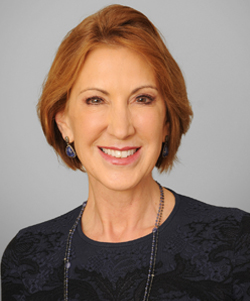
Carly Fiorina, former President and CEO of Hewlett-Packard

Duff Goldman, pastry chef, entrepreneur, featured in Food Network series Ace of Cakes
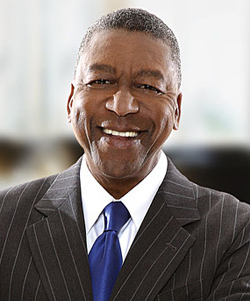
Robert L. Johnson, founder and former CEO, Black Entertainment Television (BET)
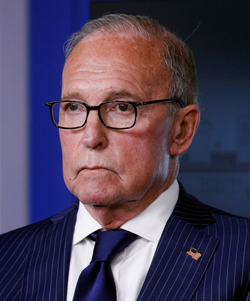
Larry Kudlow, Fox Business commentator, former Director of the National Economic Council
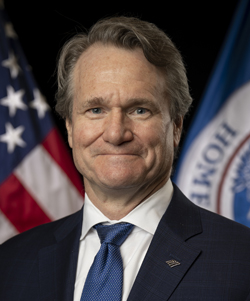
Brian Moynihan, Chairman and CEO, Bank of America
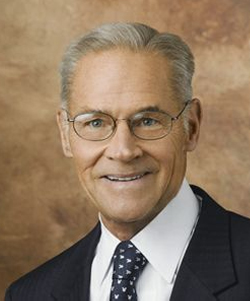
John E. Pepper, former CEO, Proctor and Gamble; former Chairman, The Walt Disney Company
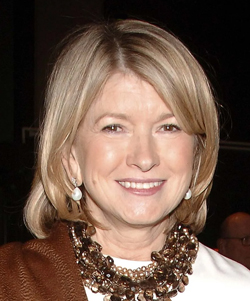
Martha Stewart, publisher, entrepreneur; founder, Martha Stewart Living Omnimedia
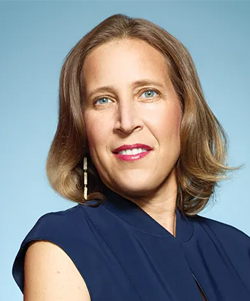
Susan Wojcicki, former CEO, YouTube
Others
Morten Albæk, founder and CEO, Voluntas A/S
Dwight W. Anderson, founder of Ospraie Management, global asset management
Binyamin Appelbaum, business and economics representative, New York Times editorial board
Ernest C. Arbuckle, former Dean of the Stanford Graduate School of Business
Claude Arpels, owner, Borbonese and Alessandro Dell’Acqua
Jim Bacchus, founding member & former chair, Appellate Body of the World Trade Organization
Alfred Bader, co-founder and former Chief Chemist, Aldrich Chemical Company
Bertrand Badre, founder and CEO, BlueOrange Capital
Bill Bain, management consultant; founder of Bain & Co.
Stewart W. Bainum, Jr., Chairman, Choice Hotels
Dean Baker, co-founder, Center for Economic and Policy Research
Peter Barnes, co-founder and former president, Working Assets Money Fund
George S. Barrett, former CEO, Cardinal Health
Eddie Basha, Jr., Chairman and CEO, Bashas’ Inc.
Jeff Bates, co-founder, Slashdot
Zai Bennett, director, Sky Atlantic
Simon Beresford-Wylie, CEO, Imagination Technologies
Laurent Berger, general secretary, French Democratic Confederation of Labour (CFDT)
Susan MacTavish Best, CEO, Living MacTavish; founder, Best PR
Porter Bibb, investment banker and first publisher of Rolling Stone
William Birdthistle, Director, Division of Investment Management, SEC
Laszio Birinyi, Jr., founder of Birinyi Associates asset management
Joan Blades, co-founder, Berkeley Systems software
Ernie Blake, founder, Taos Ski Valley, New Mexico
Lloyd Blankfein, senior chairman and former Chairman and CEO of Goldman Sachs
Peter Boizot, founder, PizzaExpress
William Bortrick, chair and editor, Burke’s Peerage
Adam Bosworth, former Vice President of Product Management, Google
James W. Bradford, former CEO, AFG Industries and United Glass Corporation
Harry Brandon, founder and Chief Operating Officer, Smith Brandon International consulting
Matthew Brouillette, founder and president, Commonwealth Partners
Christopher H. Browne, former director, Tweedy, Browne investment firm
David Bunnell, founder, PC Magazine, PC World, and Macworld
Stewart Butterfield, founder, Ludicorp, creator of Flickr and Game Neverending
Wally Byam, founder of Airstream, Inc.
Ely Callaway, Jr., founder, Callaway Golf Company
Carmen Callil, founder, Virago Press
Jeff Campbell, former CEO, Burger King
Mitch Caplan, former CEO, E-Trade Financial Corporation
Michael Carey, co-founder, ATLAS Space Operations; CEO, AAC Microtec
Kent Carroll, publisher, Europa Editions, former Editor-in-Chief, Grove Press
Brian Cashman, General Manager and Senior Vice President, New York Yankees
Tom Cassidy, former CNN business reporter and anchor
Julie Chaiken, fashion designer, founder of Chaiken clothing line
John T. Chain, director, R.J. Reynolds, ConAgra, Kemper Insurance
T.K. Chand, Director, Vedanta Ltd.; former chair, NALCO
Kenneth Chenault, former CEO and Chairman, American Express
Julia Child, chef, entrepreneur, author
Anwar Chitayat, founder and former CEO and Chair, Anorad Corporation
Richard Clark, former president, CEO and chair, Merck Pharmaceuticals
Douglas Clayton, founder and CEO, Leopard Capital
James Click, General Manager, Houston Astros
Jared Cohen, President of Global Affairs, Goldman Sachs
Charles W. Coker, former president and CEO, Sonoco Products; director, Bank of America
Leonard S. Coleman, Jr., former President of the National League
Miles A. Copeland III, entertainment executive, manager of The Police
Lloyd Cotsen, former president and CEO, Neutrogena
John Coumantaros, chairman and former CEO, Flour Mills of Nigeria
Nancy Cruickshank, Chief Digital Officer, Carlsberg Group A/S
Patrick Cunnane, CEO, Advanced Sports International
Eric Daniels, former CEO, Lloyds Banking Group
William Danoff, portfolio manager, Fidelity Contrafund
Maureen Kempston Darkes, former president, General Motors International
Alexander Darwall, founder and manager, Devon Equity Management
Bob Davoli, Gutbrain Ventures, venture capital firm
Katherine August de Wilde, former president, First Republic Bank
William S. Dietrich II, founder and former chairman and CEO, Dietrich Industries
Bertis Downs IV, entertainment lawyer; R.E.M. manager
David Drummond, Sr. VP of Corporate Development and Chief Legal Officer, Alphabet
Donna Dubinsky, PDA pioneer, former CEO, Palm; co-founder, Handspring & Numenta
Thomas L. Dunne, publisher, Executive Vice President, St. Martin’s Press
Blair Effron, financier, co-founder, Centerview Partners
Ian Bruce Eichner, real estate developer and founder, The Continuum Company, LLC
Inger McCabe Elliott, founder, China Seas, Inc.
Bob Ely, former president, SeafoodAlliance; founder, M&M Investors; former CEO, PayDQ
Ron Erickson, CEO, Visualant; co-founder, Microrim, GlobalVision, & Egghead Software
Paul Fang, Chairman and President, Midea Group
Eric Fanning, President and CEO, Aerospace Industries Association
Gerald Fauth, former Chairman, National Mediation Board
John Ferriter, former Executive Vice President, William Morris Agency
Peter R. Fisher, Senior Director, BlackRock Investment Institute
Richard B. Fisher, former President and Chairman, Morgan Stanley
Catherine Austin Fitts, Managing Director, Dillon, Read & Co.
Maurice Flanagan, founding CEO of Emirates; Executive Vice-Chair, The Emirates Group
William Clay Ford, Jr., Executive Chair, Ford Motor Company
Henrietta H. Fore, Chair and CEO, Holsman International management firm
Daniel Fournier, Chairman and CEO, Ivanhoe Cambridge
John B. Frank, Vice Chairman, Oaktree Capital Management
Bill Franke, co-founder and Managing Partner, Indigo Partners LLC; President, Franke & Co.
Brandon Friedman, former CEO, McPherson Square Group; co-founder, Rakkasan Tea
Fabrice Fries, Chairman and CEO, Agence France-Presse
Mark B. Fuller, co-founder, Monitor Group (now Monitor Deloitte)
Jayne-Anne Gadhia, founder and Executive Chairperson, Snoop; former CEO, Virgin Money
Maury Gallagher, CEO and Chairman, Allegiant Travel
Julian Geiger, former CEO, Aeropostale
Joey Ghazal, restaurateur, founder of Fighterbrands Holdings & Pine Tree State Trading Co.
Charles K. Gifford, chairman emeritus, Bank of America
Richard Gilder, head, Gilder, Gagnon, Howe brokerage; co-founder, Gilder Lehrman
Eric Gleacher, founder and former chairman, Gleacher & Co. Investments
Rick Goings, former chairman, Tupperware Brands
Dave Goldberg, founder of LAUNCH Media and former CEO, SurveyMonkey
David Goldhill, co-founder and CEO, Sesame; chair, Leapfrog Group
Jack Graham, founder, chairman and CEO, ICAT Holdings; former CEO, Paraline Group
Daniel Gross, editor-in-chief, strategy + business magazine
Wyc Grousbeck, majority owner, Boston Celtics
Howard M. Guttman, founder, Guttman Development Strategies
Oliver Haarmann, founding partner, Searchlight Capital Partners
John Hailer, former president and CEO, Natixis Global Asset Management
George Halvorson, former CEO, Kaiser Permanente
Bill Hambrecht, Chairman, WR Hambrecht & Co., architect of the Google IPO
Brad Handler, founder and chairman, Inspirato; first legal counsel for eBay
Carol Hansell, founder and senior partner, Hansell LLP consulting
Rachel Haot, Executive Director, Transit Innovation Partnership
Mihkel Harilaid, CEO and executive producer, Black Walk (television and film production)
Tristia Harrison, CEO, Talk Talk Group
Angela Hartnett, restauranteur and entrepreneur
Kevin Hartz, co-founder, Xoom
John Hatch, pioneer in modern microfinance, founder of FINCA International
Timothy Headington, CEO and owner, Headington Oil
Roger Headrick, former president, Minnesota Vikings
Sean Healey, Chairman and CEO, Affiliated Managers Group, asset management
Benjamin W. Heineman, Jr., former Senior Vice President and General Counsel, GE
John Hendricks, founder and former chair, Discovery, Inc., owner of TLC, Animal Planet
Steven M. Hilton, president, Conrad N. Hilton Foundation
George A. Hirsch, magazine publisher; founder of the five-borough New York City Marathon
Saul Holiff, music promoter, manager for Johnny Cash
Edmund Hollander, President, Hollander Design Landscape Architects
James C. Hormel, former president, Hormel Foods
Chris Hughes, co-founder and former spokesperson, Facebook
T. Don Hutto, co-founder, Corrections Corporation of America
Jason Hyland, Senior Advisor, Dentons Global Advisors; former president of MGM Japan
Adi Ignatius, editor-in-chief, Harvard Business Review
David Bronson Ingram, Chairman and President, Ingram Entertainment; founder/chair, DBI
Martha Rivers Ingram, Chair and CEO, Ingram Industries
Bill Jemas, former president, Fleer Entertainment Group; former VP, Marvel Comics
Kelvin A. Jeremiah, President and CEO, Philadelphia Housing Authority
Willene Johnson, former Vice President, Federal Reserve Bank of New York
William D. Johnson, former president and CEO, Pacific Gas and Electric
David Kaiser, former president, Rockefeller Family Fund
Maria Kang, fitness advocate, coach, founder of No Excuse Mom
Kent Karosen, former president and CEO, Fisher Center for Alzheimer’s Research Foundation
Sam Kass, chef, entrepreneur, former Senior Policy Advisor for Nutrition Policy
Kyle Kazan, CEO, Glass House Group; founder and chair, Beach Front Property
Gail Kelly, former CEO, Westpac; first female head of a top-fifteen Australian company
Theo Killion, former CEO, Zale Jewelers; former director, Jewelers of America
James Kilts, former CEO, Gillette Corporation
Richard H. Kimball, founding partner, Technology Crossover Ventures
Ian King, business journalist, host of Ian King Live on Sky News
Holly Kinser, President, The Kinser Group lobbying firm
Donald Knauss, former CEO, Clorox Corporation
Angus Knowles-Cutler, managing partner, Deloitte
Jonathan Kraft, President, The Kraft Group; President, New England Patriots
Jack Krumpe, former CEO, Madison Square Garden, NJ Sports, and Javits Center
Philip Lader, former chairman, WPP advertising and communications
Mitch Lasky, general partner, Benchmark Venture Capital; video game entrepreneur
Marc Lasry, co-founder and CEO, Avenue Capital Group; co-owner, Milwaukee Bucks
David Lazarus, business and consumer columnist, KTLA and Los Angeles Times
Alexandra Lebenthal, managing director, Rockefeller Capital Management
Christopher Lee, founder and Managing Partner, AIG Highstar Capital
Thomas Leonardi, director, American Council of Life Insurers, Athene Co-Invest
Diana Lindsay, founder and president, Sunbelt Publications
Alasdair Locke, chairman, Abbot Group
Stephan Loewentheil, founder and president, 19th Century Rare Book Shops
Chris Lowney, Chair, CommonSpirit Health; former managing director, JP Morgan
Peter Lynch, manager, Magellan Fund, Fidelity Investments
Michael Lynton, Chairman, Snap, Inc.; former Chair and CEO, Sony Pictures
John J. Mack, advisor, Kohlberg Kravis Roberts; former CEO and chair, Morgan Stanley
Mark Maremont, two-time Pulitzer Prize winner, business journalist, Wall Street Journal
Vincent Marotta, co-creator of Mr. Coffee
Marsh Marshall, Chief Operating Officer, Periwinkle Trading LLC
Gracia Martore, chair, Associated Press; former president and CEO, Tegna and Gannett
Carolyn McCall, CEO, ITV; former CEO, EasyJet
Wendy McCaw, owner, Santa Barbara News-Press
Aubrey McClendon, founder, former CEO American Energy Partners and Chesapeake Energy
John B. McCoy, former president, Banc One and director of AT&T and Cardinal Health
Mike McDaniel, head coach, Miami Dolphins
Tom McEnery, part owner, San Jose Sharks
Roger McNamee, founding partner, Elevation Partners (VC firm) and Silver Lake Partners
Heidi Messer, President and Chief Operating Officer, LinkShare
Eric A. Meyer, Web consultant, advocate for CSS standards; co-founder, CSS Samurai
Robert W. Mixon, Jr., co-founder, Level Five Associates
Mahbod Moghadam, Internet entrepreneur, co-founder of Rap Genius
Patricia Moller, former investment banker, Smith Barney and Moller Global
David Montgomery, former chairman and president, Philadelphia Phillies
Beth E. Mooney, former CEO, KeyCorp; first woman to lead a major U.S. bank
Charlotte Moore, BBC Chief Content Officer
James J. Morgan, former CEO, Atari and of Philip Morris USA
Michael Moritz, venture capitalist, Sequoia Capital
Daniel Mudd, former president and CEO, Fannie Mae, and former CEO, Fortress IG
Patrick Mweheire, CEO, Standard Bank Group for Eastern Africa
Douglas Myers, former CEO and chairman, Lion Nathan
Tom Naratil, CEO, UBS Americas Holding LLC; co-president GWM
John L. Nau, Chairman and CEO, Silver Eagle Beverages
Paula Nickolds, CEO, The White Company
Daniel Ninivaggi, Executive Chairman, Lordstown Motors; former CEO, Icahn Enterprises
Charles Noell, founder, JMI Equity
Michelle Nunn, CEO of CARE USA
Robert Nutting, principal owner and chair of the board, Pittsburgh Pirates
Crispin Odey, founder, Odey Asset Management
Akin Ogunbiyi, Chairman, Mutual Benefits Assurance PLC
Sean O’Keefe, former chairman, Airbus Group
Tom Okman, co-founder, Tesonet and Nord Security (NordVPN)
Lee Olesky, co-founder, Chairman, and CEO, Tradeweb
Robert Orr, former President, Boeing Japan; former Vice President, Motorola
Sandra Palmer, IT entrepreneur, founder SSP APTEC, Soulmates
Samuel J. Palmisano, former chair of the board and CEO, IBM
George Paton, General Manager, Denver Broncos
Jim Paymar, financial correspondent and anchor, CNBC and BusinessWeek
Len Peach, Chief Executive, National Health Service, UK
Steven Peikin, Co-Director, Securities and Exchange Commission
Ron Pelosi, former president, Forward Funds and Webster Investment Management
Jonnie Penn, author and artificial intelligence researcher
Christopher Perrin, CEO and co-founder, Classical Academic Press
David Wendell Phillips, former CEO, Crunch Music; founder & former CEO, NaturalPath Media
Betsy Plank, founder, Betsy Plank Public Relations; “first lady of public relations”
Joe J. Plumeri, Vice Chair, First Data; former CEO, Willis Group Holdings
Alex Pomson, Managing Director, Rosov Consulting
Daniel J. Porter, Founder and CEO, Overtime digital sports media company
Jared Porter, former Executive Vice President and General Manager, New York Mets
Lewis Thompson Preston, former President of the World Bank
Jennifer Pritzker, investor, philanthropist; founder, Tawani Enterprises
Scotty Probasco, former Chair of the Executive Committee, SunTrust Bank
Eugene S. Pulliam, former publisher, Indianapolis Star and Indianapolis News
Andrew Puzder, former CEO, CKE Restaurants
Romesh Ratnesar, Deputy Editor, Bloomberg Businessweek
Sigrid Rausing, owner, Granta magazine and Granta Books
William R. Rhodes, President and CEO, William R. Rhodes Global Advisors
Danny Rimer, Partner, Index Ventures, Silicon Valley venture capital specialist
Walter Robb, co-founder and former co-CEO, Whole Foods
Gordon P. Robertson, President, Christian Broadcasting Network
Burton Rocks, sports agent, C.L. Rocks Corporation
Jim Rogers, co-founder, Quantum Fund and Soros Fund Management; creator, RICI
Alison Rose, first British woman to lead a major bank; former CEO, NatWest Group
Evan Rosen, Executive Director, Culture of Collaboration Institute
John Rowe, chairman and CEO, Exelon Corporation
Wick Rowland, President and CEO emeritus, Colorado Public Television
J. Brendan Ryan, Vice Chair, FCB Worldwide advertising agency
David Sainsbury, Chair, Sainsbury supermarket chain
Marina Salamon, founder and president, Altana
John Sall, software developer; co-founder, SAS Institute, JMP stats
John B. Sams, former president of Air Force Systems, Boeing
Stephen Sanger, former chairman and CEO, General Mills; former director, Wells Fargo
Lauren Santo Domingo, co-founder and Chief Brand Officer, Moda Operandi
G.S. Sareen, CEO and President, Omni United Pte.
Christopher Sarofim, President, Sarofim International Management; Director, Sarofim Group
John Schneider, General Manager, Seattle Seahawks
Rock Scully, former manager of the Grateful Dead
George Seay, co-founder and chairman of Annandale Capital
Bud Selig, Commissioner of Baseball, 1998 – 2015
Adam Sender, hedge fund manager; founder, Exis Capital Management
Mark Shapiro, CEO, Toronto Bluejays
Evan Sharp, co-founder and chief design and creative officer, Pinterest
Stratford Shields, Managing Director, Loop Capital Markets
T. Russell Shields, Chair of Ygomi and CEO of RoadDB
Thomas Siebel, founder, Siebel Systems, CEO of C3.ai artificial intelligence software
Robert S. Silberman, former CEO, Strayer Education
Ben Silverman, co-CEO, Propagate
Janmejaya Sinha, Chairman, Boston Consulting Group, India
Daniel Smokler, Chief Innovation Officer, Hillel International
Jeff Smulyan, founder and CEO, Emmis Communications
Don Southerton, former CEO, Bridging Culture Worldwide
Clark Spencer, President, Walt Disney Animation Studios
Robert K. Steel, financier, former Deputy Mayor for Economic Development, New York City
Douglas Steenland, former President and CEO of Northwest Airlines
Hank Steinbrenner, co-chairman, New York Yankees
Greg Steinmetz, securities analyst, former finance reporter for Wall Street Journal
James T. Stephens, former president and chairman, EBSCO Industries
David Stern, NBA Commissioner, 1984 – 2014
Charles F. Stewart, CEO, Southeby’s
Howard Stringer, former President/CEO, Sony Corporation; former President of CBS
Dana Strong, CEO, Sky Group Media; former president, Xfinity
Amy Adams Strunk, controlling owner, Tennessee Titans
Gabriel Stulman, Founder and CEO, Happy Cooking Hospitality
Barry F. Sullivan, former Chairman and CEO, First Chicago
Justin Sun, cryptocurrency entrepreneur, founder of Tron
Steve Swindal, Chairman of Port Tampa Bay; former general partner, New York Yankees
Bryant Terry, chef, food justice activist; winner of the Beard Foundation Leadership Award
Ouigi Theodore, designer, stylist, entrepreneur Brooklyn Circus
David Thomson, chairperson, Thomson Reuters
John L. Thornton, Executive Chairman, Barrick Gold Corporation, PineBridge
David Tisch, angel investor; managing partner, BoxGroup; co-founder, TechStars
Samuel Tombs, Chief UK Economist, Pantheon Macroeconomics
Alan Tonelson, Research Fellow, U.S. Business and Industry Council
Michael Trope, sports agent, youngest agent in history to represent NFL players
Richard Uihlein, founder, Uline Company
Keven Undergaro, creator of online network AfterBuzz TV; film and TV writer
Tarjani Vakil, first woman to lead a major bank in India; former chair, Exim Bank
Kiliaen Van Rensselaer, founder and CEO, Insurrection Media
Francesco Vianello, software reverse engineer
Natalie Villalobos, Head of Developer Inspiration and Inclusion at Google
Shazi Visram, Founder and CEO, Happy Family Brands
Pim van Vliet, head of conservative equities, Robeco Asset Management
Chris Vogelzang, CEO, Danske Bank
Philippe von Borries, co-founder, Refinery29; president, Lonely Planet
Philippe von Stauffenberg, CEO and founder, Greenback Recycling Technologies
George Herbert Walker IV, Chairman and CEO, Neuberger Berman
Robert Weil, Executive Editor and Vice President, W.W. Norton/Livright
Steve Westly, Managing Partner of The Westly Group, former state controller of California
William O. Wheatley, Jr., former Executive Vice President, NBC News
Jay Whitehead, Chairman/CEO of ReentryCenters.com; publisher, CRO
Meredith Whitney, financial forecaster known as “The Oracle of Wall Street”
Kevin Wilhelm, CEO, Sustainable Business Consulting
Lorraine Williams, TSR executive
Sevetri Wilson, Founder and CEO, Resilia
Brian Witkin, founder and CEO of Pacific Records
Morgen Witzel, management consultant, focusing on China
Neal S. Wolin, CEO, Brunswick Group
Guy Wyser-Pratte, head of Wyser-Pratte investment fund
Amy Wyss, trustee, National Outdoor Leadership School and the Wyss Foundation
Robert K. Yin, President, COSMOS Corporation
Peter A. Zandan, Executive Chairman, Quantified Communications
Jake Zim, Senior VP of Virtual Reality, Sony Pictures Entertainment
Robert Zoellick, 11th President of the World Bank Group
John Zogby, pollster, founder of the Zogby International Poll
